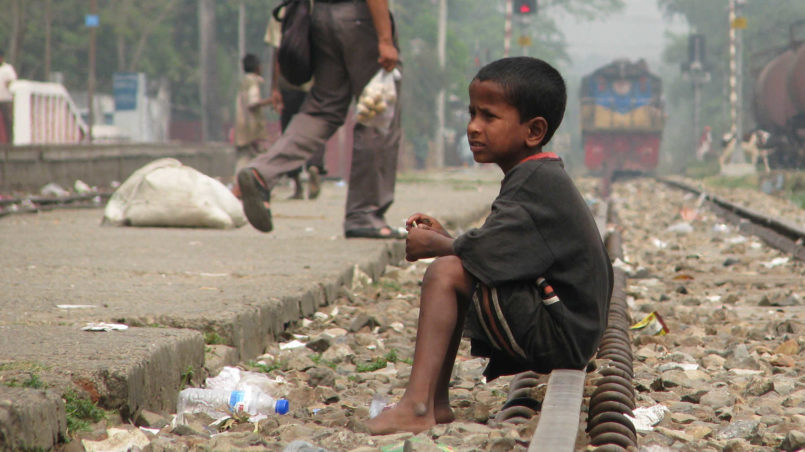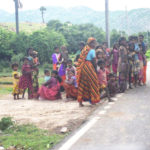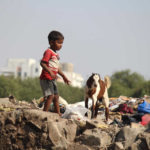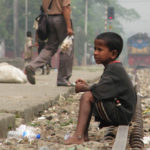The Unloved Street Children

I am sure everyone would agree if I said that “small children are capable of evoking much love and compassion in our heart”. The sight of a small child playing and having fun automatically puts a smile on your face.
Many of us might even take a small break from our busy life, or at times stop for a moment to watch children playing, laughing and enjoying themselves. There might be many like me, who experience overwhelming emotions when we see a baby or a toddler, as the desire to cuddle them overpowers everything else.
And we would all usually agree if someone says, “Who does not love a child?” Yes, it is generally assumed that most people love children and feel joyful in their presence.
When one wanders through the busy streets of metropolitan cities in India, it has become commonplace to see small children (around the age of 5 to 12) begging around traffic lights, near bus stops or under bridges. In fact, the sight of children begging around religious sites, railway stations, markets and shopping complexes has become so normal that people hardly feel any moral pangs when such children approach them for money or food.
Are these street children not worthy to receive people’s love and empathy because they look dirty and shabby? Because their language is usually abusive and full of slang? Because at times they are involved in stealing and other abusive behavior? Or because they are not as innocent as children who are blessed with a caring family and a comfortable life? Or because most of them are addicted to drugs?
There are three major categories of street children in Indian cities:
- Children who live on the streets with their families. Some of them might have temporarily moved to the cities to earn money and might also return home. These children usually work on the streets and will often be seen selling flowers, handicrafts or begging near traffic lights or market areas.
- Children who live on the streets by themselves or in groups, and have more or less no access to their families living in some faraway village. However, some of these children might travel to the cities every day or for a few days to work and then they return to their villages.
- Children who live on the streets and have no ties at all with their families. They might be orphans, refugees or runaways.
Homeless and without a family, these children have to survive in the cities and are completely on their own. They have to organise their own food each and every day, and I am very sure there might be days when they don’t get anything to eat. If they steal simply due to the fact that they are starving, is this a crime? Is this a reason to treat them as criminals?
People try to do their best for their own children, regardless of the latter’s weaknesses if any, but readily find a thousand reasons to become indifferent to the basic needs of street children, becoming annoyed by their weaknesses. Whatever people’s reasons might be, the reality is that street children, because of their destitution and helpless situations, fail to qualify to receive people’s love, care and concern.
However, most people living in metropolitan cities would readily agree if I say that a person, irrespective of his ‘good will’, would eventually fail to feel any lasting compassion for such children, because street children begging and pestering passers-by is extremely commonplace and rampant in the cities of India.
Moreover, it is also believed that such street children work for an organisation similar to the mafia and thus one should not dole out any alms to these children as it would mean encouraging the mafia.
Or is it that love has become a scarce emotional resource, to be given only to family members and friends? For whom are we hoarding love? Or is it that we are devoid of compassion altogether?




[…] one of my earlier articles I wrote about the unloved street children in Indian cities. And I would say that the views and opinions expressed in that article were an […]